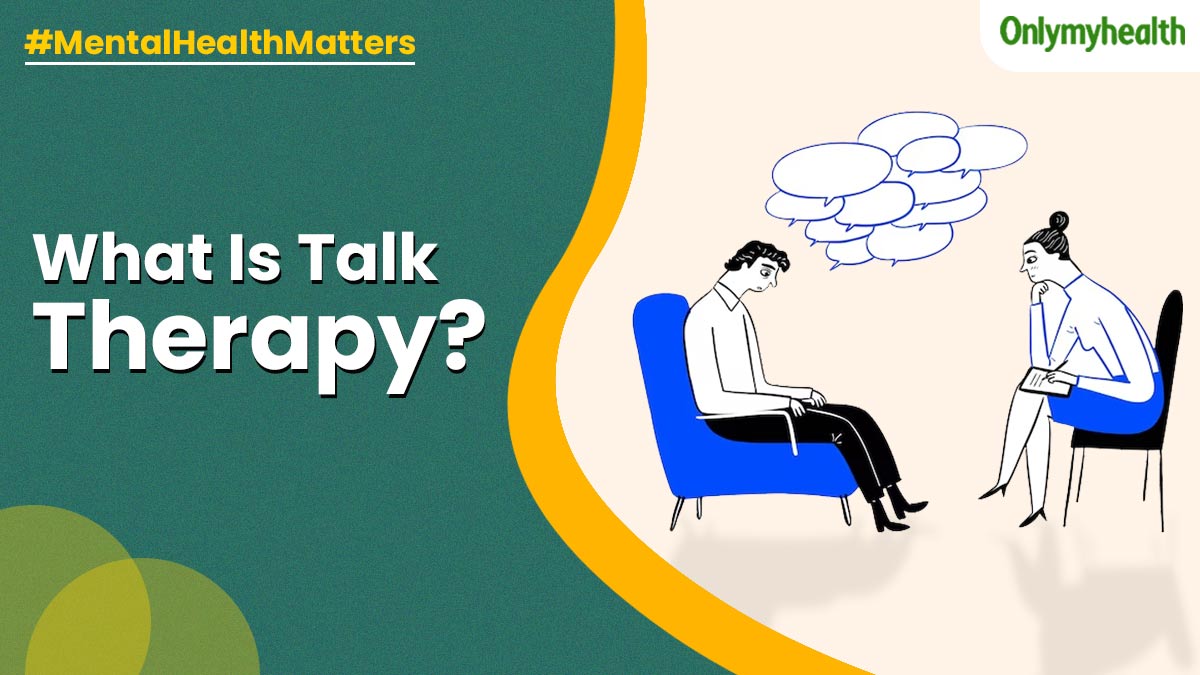
It's not uncommon for our minds to become tangled in a web of emotions and thoughts in a world that frequently feels like a maelstrom of expectations, pressures, and uncertainties. In times like these, talking therapy emerges as a beacon of hope, offering a safe space to explore, heal, and grow. But what exactly is talking therapy, and how can it become a powerful catalyst for transformation?
To learn about this therapy and its effects on mental health, we spoke to Kavya Bontha, Counselling Psychologist, Lissun (Mental health and emotional wellness startup).
What Is Talk Therapy

Talk therapy, also known as psychotherapy or counselling, is a psychological treatment that involves talking to a mental health professional about various things like your feelings, thoughts, and self-observed behaviours. It can be used to know and have a better understanding of oneself, and to develop a clear path and coping skills to face life challenges. It extends beyond addressing mental health conditions. It offers a sanctuary for personal growth, emotional support, and a fresh perspective on life's challenges.
Also Read: #MentalHealthMatters: What Is Bipolar Disorder, Explained
Types of Talking Therapy

There are different types of talk therapy, each is based on a different framework and applicable differently for every individual. Here are some of them shared by Bontha.
Cognitive-Behavioural Therapy (CBT)
This type of therapy focuses on identifying and changing negative thought patterns and behaviours that contribute to mental health problems.
Psychodynamic Therapy
This approach explores the unconscious mind and unresolved conflicts that may be affecting a person's current behaviour and emotions.
Humanistic Therapy
This type of therapy emphasises self-awareness, personal growth, and developing a stronger sense of self.
Interpersonal Therapy
This approach focuses on improving communication and relationships with others to address mental health problems.
Family Therapy
This type of therapy involves working with families to improve communication, resolve conflicts, and promote positive relationships.
Group Therapy
This involves meeting with a group of people who have similar mental health concerns and working together to support each other and learn new coping skills.
Dialectical Behaviour Therapy (DBT)
This type of therapy focuses on helping people manage difficult emotions and improve interpersonal relationships.
Mindfulness-based Therapies
These approaches incorporate mindfulness practices, such as meditation and breathing exercises, to promote relaxation and reduce stress and anxiety.
Also Read: #MentalHealthMatters: What Is Depression? Explained
What Should A Person Talk About In Therapy?

Bontha said, “It is important to remember that the therapist is always available to give support and guide you. You can discuss your mental health concerns, life stressors, trauma, relationship adjustment issues, goal planning, managing stress, the experience of abuse, work-related issues and anything that is impacting your mental health. The beauty of talking therapy lies in its versatility and ability to adapt to each individual's unique needs.”
How Can It Reduce Risk Of Cardiovascular Diseases?

Reduce Stress
Talk therapy can help individuals learn coping skills to manage stress more effectively, which may help to reduce their risk of developing cardiovascular disease. Stress can cause the body to release hormones like cortisol and adrenaline, which can increase blood pressure and heart rate.
Lifestyle Changes
Talk therapy can help people make positive changes in their lifestyle that can improve their cardiovascular health. For example, a therapist may work with a person to develop a plan to increase physical activity, eat a healthy diet, and quit smoking.
Help Manage The Condition
A therapist may work with a person to develop strategies for managing symptoms like chest pain or shortness of breath. They may also help individuals to adhere to medication regimens and make necessary lifestyle changes.
It's important to note that talk therapy should not be used as a replacement for medical treatment for cardiovascular disease. However, it can be a helpful complement.
Bottomline
In a world where we often prioritise external achievements and neglect our internal landscapes, talking therapy reminds us to pause, listen to our hearts, and tend to our emotional well-being. Through the power of conversation, we gain the tools to navigate the twists and turns of our inner worlds. It can also help us reclaim our resilience, and embrace a brighter future.







